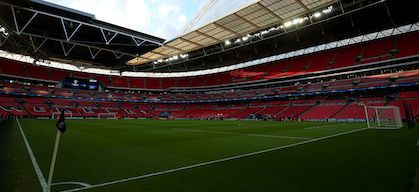Why I love an international break
By Robin Bairner
26 March 2022
Franck Jurietti is unlikely to be a name familiar to many football fans. A veteran of Gueugnon, Bastia, Monaco, Marseille and Bordeaux, the former full-back may just be the player with the shortest international career in history.
Jurietti has one France cap to his name, achieved on October 12, 2005, when he turned out against Cyprus for just five seconds. Needless to say, he did not touch the ball.
And who could forget Rene Higuita’s scorpion kick while playing in goal for Colombia against England at Wembley? What about Zlatan Ibrahimovic’s incredible four-goal haul against the Three Lions, including an amazing overhead kick, in November 2012 as Sweden celebrated is opening of the Friends Arena?
Had it not been for the phenomenon of international friendlies, such stories would not occur.
It’s undeniable that often these matches boil down into dour encounters that form little more than glorified training sessions, but such special moments make these fixtures worthwhile for supporters.
Indeed, friendlies often provide a welcome opportunity to spread the wings of national teams away from their traditional centres. France, for example, tackled Ivory Coast on Friday some 670 kilometres from their traditional home at Stade de France. The match is expected to be close to a sell out, meaning around 65,000 spectators will watch on. Try telling them that friendly matches are a waste of time.
Germany, meanwhile, will play Israel in Hoffenheim, and Spain will face Albania in Barcelona at Espanyol’s Cornella El-Prat.
It is a curiously British phenomenon that such games are played with religious consistency at the traditional home venues of the home nations. This is driven in part by the FA owning Wembley and seeking to maximise its return. Try taking an international to Birmingham or Newcastle and see what response they get from the public.
There can be little doubting their worth to the various international managers, too.

England often play friendlies at Wembley, but most other countries take these games away from their national stadia
Qualifying campaigns are often high in tension, which success and failure balanced delicately upon the outcome of perhaps only one or two fixtures. Slip unexpectedly elsewhere and it means the margin for error is diminished further.
Opportunities to test new players and systems, then, are precious. Indeed, every chance to get a disparate group of players together to train is welcome and all too rare for the game’s international bosses.
For players, too, these fixtures can be a welcome tonic. For the superstars who are playing 50 or more club games a season, they may be seen as an unwelcome distraction, but for others, they can offer precious game time.
Take Nathan Patterson, for example. The Everton right-back has not seen a single minute of league action since going to Goodison Park from Rangers in January. However, he took the opportunity of Scotland’s friendly with Poland to make a point to Frank Lampard with a dynamic performance down the flank that his manager must have taken note of.
And then, of course, there are those one-cap wonders like Juriette, journeyman professionals who can claim forever that they are international footballers thanks to the opportunities presented to them by these low-key but under-rated events.
Friendly matches will rarely get the pulse racing like a competitive encounter, but their value should not be too readily written off for fans, players and management.